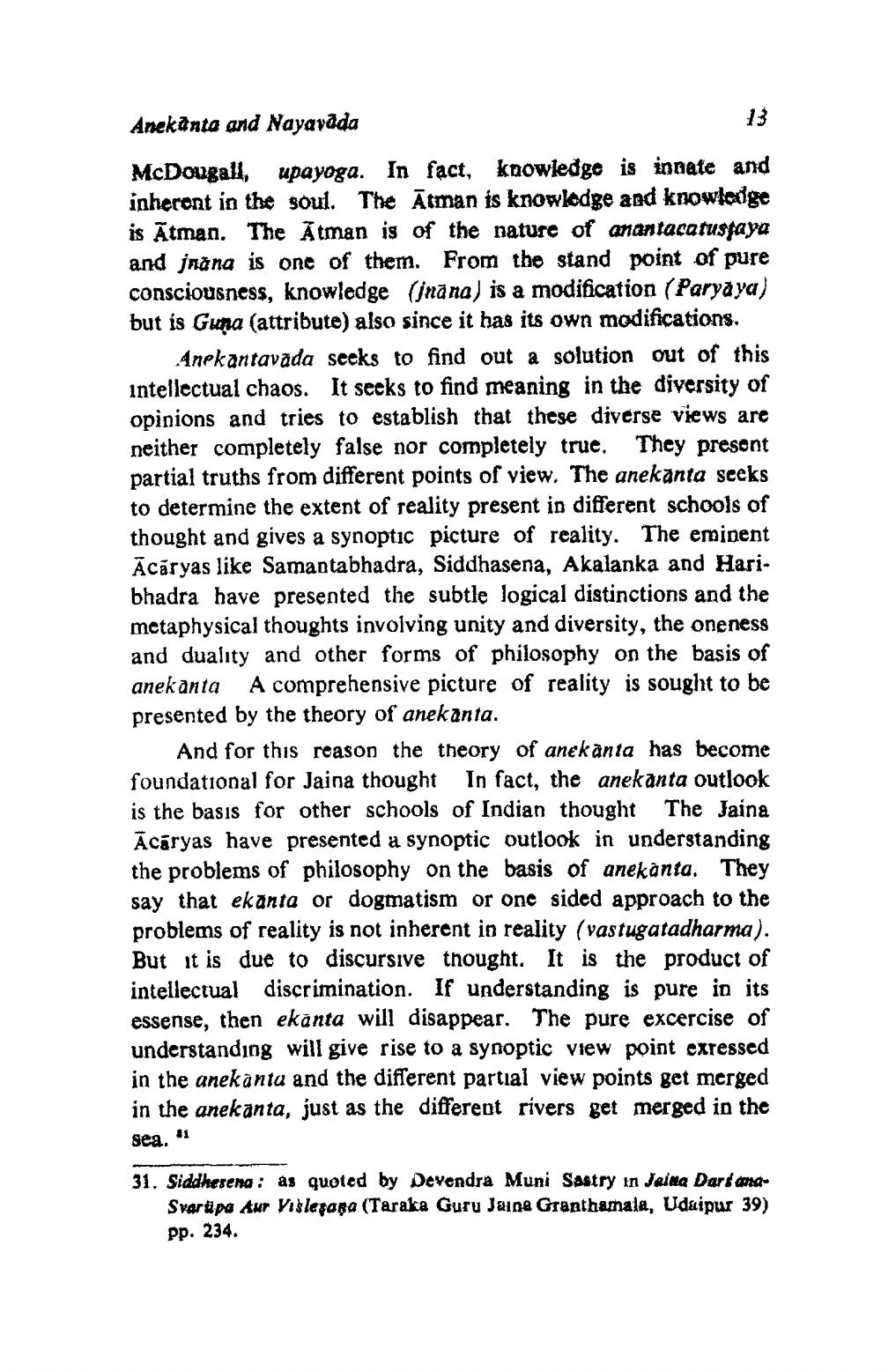________________
13
Anekanta and Nayavāda McDougall, upayoga. In fact, knowledge is innate and inherent in the soul. The Ātman is knowledge and knowledge is Ātman. The Atman is of the nature of anantacatusfaya and jnana is one of them. From the stand point of pure consciousness, knowledge (jnana) is a modification (Paryaya) but is Guna (attribute) also since it has its own modifications.
Anekantavada seeks to find out a solution out of this intellectual chaos. It seeks to find meaning in the diversity of opinions and tries to establish that these diverse views are neither completely false nor completely true. They present partial truths from different points of view. The anekanta seeks to determine the extent of reality present in different schools of thought and gives a synoptic picture of reality. The eminent Ācāryas like Samantabhadra, Siddhasena, Akalanka and Haribhadra have presented the subtle logical distinctions and the metaphysical thoughts involving unity and diversity, the oneness and duality and other forms of philosophy on the basis of anekanta A comprehensive picture of reality is sought to be presented by the theory of anekanta.
And for this reason the theory of anekanta has become foundational for Jaina thought In fact, the anekanta outlook is the basis for other schools of Indian thought The Jaina Ācāryas have presented a synoptic outlook in understanding the problems of philosophy on the basis of anekanta. They say that ekanta or dogmatism or one sided approach to the problems of reality is not inherent in reality (vastugatadharma). But it is due to discursive thought. It is the product of intellectual discrimination. If understanding is pure in its essense, then ekanta will disappear. The pure excercise of understanding will give rise to a synoptic view point cxressed in the anekanta and the different partial view points get merged in the anekanta, just as the different rivers get merged in the sea. "
31. Siddhesena : as quoted by Devendra Muni Sastry in Jaina Dars ma
Svarüpa Aur Vislegara (Taraka Guru Jaina Granthamala, Udaipur 39) pp. 234.




